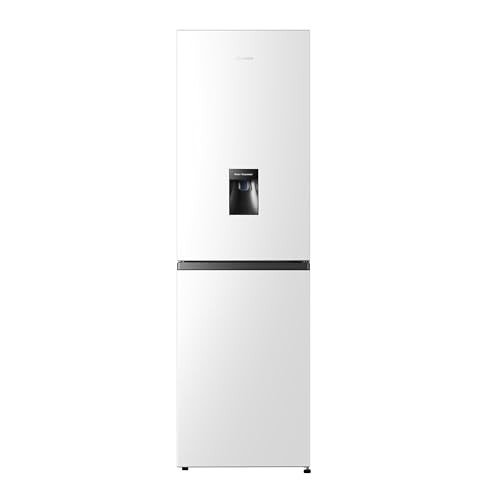The Comprehensive Guide to Refrigerators: Types, Features, and Maintenance
Refrigerators, commonly described as fridges, play an essential role in modern families by maintaining food, minimizing waste, and maintaining a comfy living environment. These necessary cooking area home appliances have evolved substantially for many years in regards to innovation, performance, and design. This post aims to offer a comprehensive overview of the different types of fridges, their functions, and pointers for maintenance, making it a vital resource for house owners.
Kinds of Refrigerators
Fridges are available in numerous styles and setups, each catering to different needs and preferences. Below is an overview of the most typical kinds of fridges available on the marketplace today.
| Type of Refrigerator | Description |
|---|---|
| Top-Freezer | This is the timeless fridge design where the freezer compartment is found on top. Cheapest Fridge Freezer UK is generally the most budget-friendly option, making it popular for budget-conscious consumers. |
| Bottom-Freezer | In this design, the freezer is located at the bottom, permitting simple access to fresh items at eye level. This type frequently includes pull-out drawers for much easier company. |
| Side-by-Side | This model has the freezer and refrigerator compartments arranged vertically beside each other. It provides easy access to both areas and typically features water and ice dispensers. |
| French Door | Integrating the advantages of a bottom-freezer style with broad doors on the refrigerator section, French door fridges use ample space and flexibility, making them perfect for big households. |
| Compact | Also referred to as mini-fridges, these smaller systems are best for dormitory rooms, workplaces, or as secondary fridges in homes. They have limited storage but are energy-efficient. |
| Smart Refrigerators | Equipped with smart technology, these fridges use features such as touch screens, internet connection, and app controls. They can offer notifications for ended food and other smart functionalities. |
Key Features to Consider
When choosing a refrigerator, it is vital to think about various functions that can enhance functionality and effectiveness. Here are some crucial features to look for:
Energy Efficiency
- Search for models with an Energy Star ranking to make sure energy efficiency and lowered energy expenses.
Storage Options
- Adjustable shelves, door bins, and specific compartments for vegetables and fruits enhance the flexibility of storage.
Water and Ice Dispensers
- Lots of side-by-side and French door designs feature built-in water and ice dispensers, offering benefit and motivating hydration.
Temperature Control
- Precise temperature control permits property owners to set optimum conditions for different food products.
Smart Features
- Functions like touchscreen interfaces, Wi-Fi connectivity, and integrated electronic cameras to help manage grocery inventories make wise fridges appealing.
Noise Levels
- Think about designs with low functional noise, specifically if the cooking area is open to the living area.
Maintenance Tips for Refrigerators
Correct upkeep can prolong the life of a refrigerator and guarantee optimal efficiency. Here are some useful upkeep tips:
Regular Cleaning:
- Clean the exterior and interior surfaces of the fridge with mild soap and water a minimum of as soon as a month.
- Get rid of spills immediately to avoid smells and bacteria development.
Temperature Settings:
- Maintain your refrigerator at a temperature level in between 35 ° F to 38 ° F and the freezer at 0 ° F for ideal food preservation.
Examine Door Seals:
- Inspect the door seals occasionally for fractures or tears. A malfunctioning seal can result in energy loss and increased electricity expenses.
Defrost Regularly:
- For manual defrost designs, thaw the freezer when ice develops to lower the device's work.
Condenser Coils:
- Clean the condenser coils at the back or beneath the refrigerator every 6 months to improve effectiveness.
Keep it Level:
- Ensure the refrigerator is level for proper door positioning and to prevent vibrations.
Frequently Asked Questions (FAQs)
1. The length of time should a refrigerator last?Usually, a refrigerator can last anywhere from 10 to 20 years, depending upon the brand and upkeep practices.
2. How can I improve the energy efficiency of my refrigerator?To improve energy performance, keep the fridge's temperature settings ideal, routinely clean the condenser coils, and prevent putting hot food within.
3. What type of refrigerator is best for little kitchen areas?Compact or counter-depth designs are ideal for small cooking areas as they supply adequate storage without inhabiting too much space.
4. Are clever refrigerators worth the investment?Smart fridges can be worth the investment if you value benefit and innovation. They use performances like stock management and remote access, which deal with tech-savvy users.
5. How can I fix a refrigerator that is not cooling properly?Start by inspecting the temperature level settings, making sure the condenser coils are tidy, and validating that the door seals are undamaged. If these do not fix the concern, think about calling a professional service technician.
In conclusion, refrigerators are vital devices that play an essential role in preserving food and keeping a healthy way of life. With a range of types and features readily available, it is vital for consumers to select a model that aligns with their specific needs. By understanding the choices and adhering to maintenance best practices, homeowners can enjoy the benefits of their fridges for many years to come.

